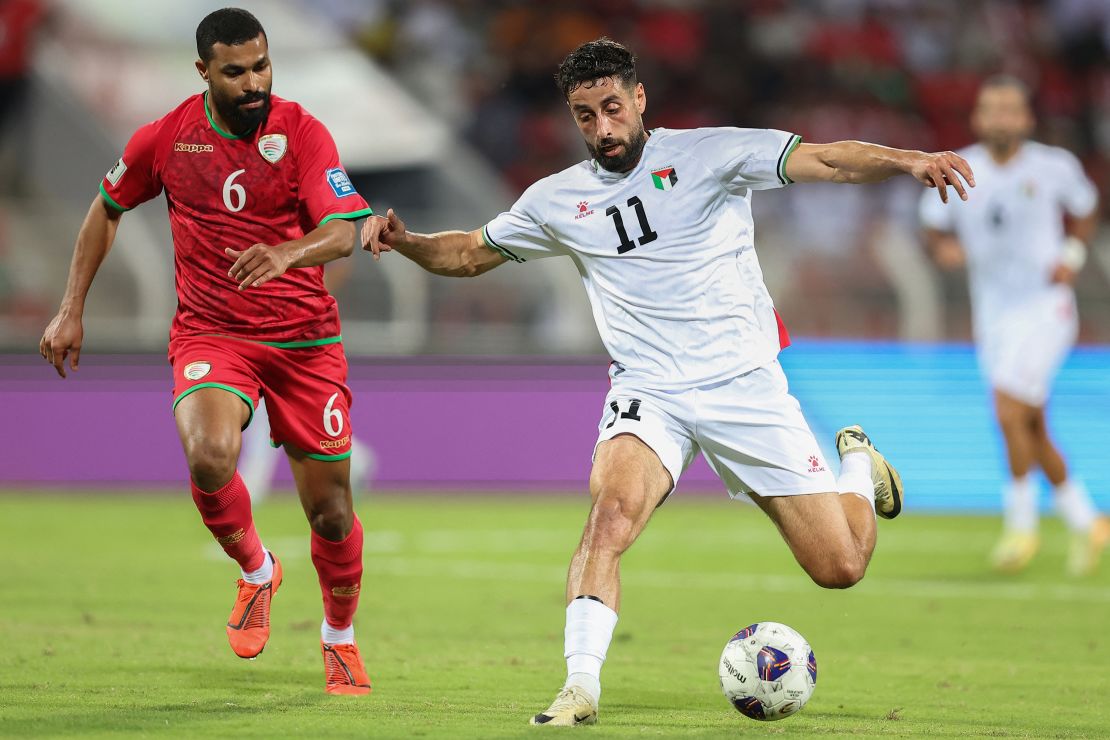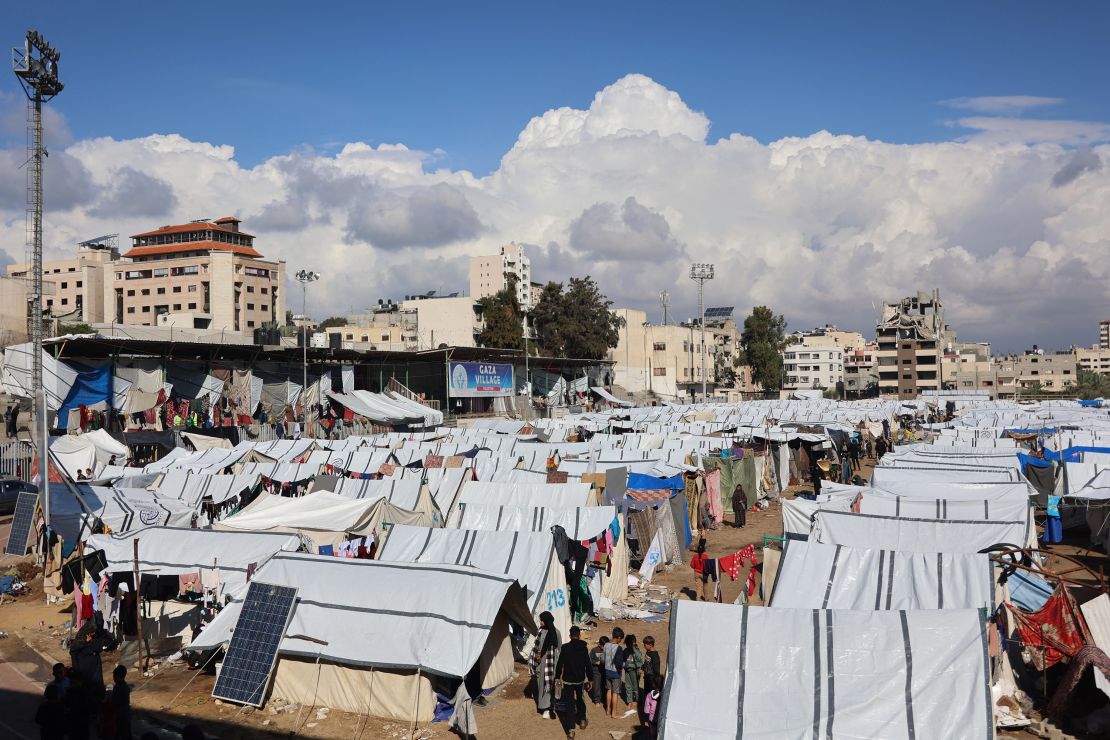From lifting the Scottish Cup with Aberdeen to leading Palestine’s charge toward a historic World Cup qualification, Oday Dabbagh has become a symbol of resilience and ambition. The 26-year-old forward, now Palestine’s all-time leading goal scorer, speaks about the honor of representing his country, the power of sport amid crisis, and the message he hopes to send back home.
A moment that will “stay with me forever”
Few players ever have the chance to define a game, let alone a season, with a single strike. But that’s exactly what Oday Dabbagh did in the Scottish Cup final, calmly slotting a high-pressure penalty into the top-left corner to help Aberdeen secure a dramatic shootout win over Celtic. For the club, it was a moment of long-awaited glory—their first Scottish Cup win in 35 years. For Dabbagh, it was unforgettable. “The feeling was incredible,” he told CNN Sports. “To help win a trophy like that, in such a big moment, with such intensity and emotion—it’s something that will stay with me forever.”

It was the perfect culmination to his short but impactful loan spell from Belgian side Charleroi. In just four months, the 26-year-old had already become a fan favorite. Weeks before his penalty heroics, Dabbagh had scored a decisive late goal against Hearts to keep Aberdeen’s cup run alive. With his current contract at Charleroi running through 2026, his club future remains uncertain—but what lies ahead for Dabbagh extends far beyond club football.
A symbol of hope on and off the pitch
As Dabbagh prepares to return to his parent club, his attention turns to the Palestinian national team and its ongoing effort to qualify for the 2026 FIFA World Cup, set to be hosted across the USA, Canada, and Mexico. For a nation still seeking its first-ever World Cup appearance, the possibility is tantalizing—and for Dabbagh, deeply personal.
“It’s one of the greatest honors in my life,” he said. “To wear the Palestine shirt, knowing what it means to so many people, my family, my team, and myself … it is powerful.”
Dabbagh is already Palestine’s top scorer, with 16 international goals to his name, including a hat-trick in the first round of qualifiers. Yet his contributions go far beyond statistics. He’s become a symbol of hope for a people enduring unimaginable hardship, particularly in Gaza, where war and devastation continue to ravage daily life.
According to the Palestine Football Association, over 400 athletes—including more than 270 soccer players—have been killed in the ongoing conflict with Israel. The association’s facilities in Gaza have been destroyed or repurposed to shelter displaced families. And because of the instability, Palestine’s “home” matches have been relocated to countries as far away as Jordan, Qatar, and Malaysia.
“In spite of the genocide our people are subjected to in Gaza, the will to live as a nation remains,” said Susan Shalabi, vice president of the Palestine FA. “The national team has become a symbol of our national aspirations, of the longing to live in peace like other nations under the sun.”
Trailblazing from Jerusalem to Europe

Dabbagh’s story began on the streets of Jerusalem, where he kicked a ball long before he could imagine playing in Europe. He debuted for Hilal Al-Quds in the West Bank Premier League at just 16, going on to win three league titles. His talent soon carried him beyond Palestine, with stints in Kuwait—where he won a league title with Al-Arabi in 2021—followed by professional contracts in Portugal, Belgium, and Scotland.
In 2021, Dabbagh became the first home-grown Palestinian to play in a major European league when he signed with Arouca in Portugal’s top flight. That move, and subsequent signings, weren’t just personal milestones—they marked an evolution in the visibility of Palestinian footballers on the world stage. “I don’t see myself as a trailblazer,” he said. “But I do hope what I can achieve helps make the path a little clearer for others. I know how much football means to everyone back home, and I don’t take that lightly.” His message to young Palestinians is clear: “Never stop believing. Work hard, stay focused, and never lose your passion. You belong on the world stage.”
World Cup hopes and national pride
Palestine currently sits fifth in its qualifying group and needs to finish in the top four to advance to the next round. With crucial games against Oman and Kuwait coming up, the road is difficult, but not impossible. And with Dabbagh leading the line, belief remains high among players and fans alike.
For Palestinians living under occupation and conflict, qualifying for the World Cup would mean more than a sporting achievement—it would be a source of unity, pride, and international recognition at a time when visibility is more vital than ever. “I play for something bigger than myself,” Dabbagh said. “Every time I step on the pitch for Palestine, I carry the hopes of a people who just want to live, to dream, and to be heard.” Should he and his teammates make it to football’s biggest stage, it would not only mark the high point in Dabbagh’s trophy-filled career but also serve as a shining beacon for a nation that continues to fight for its place in the world.




